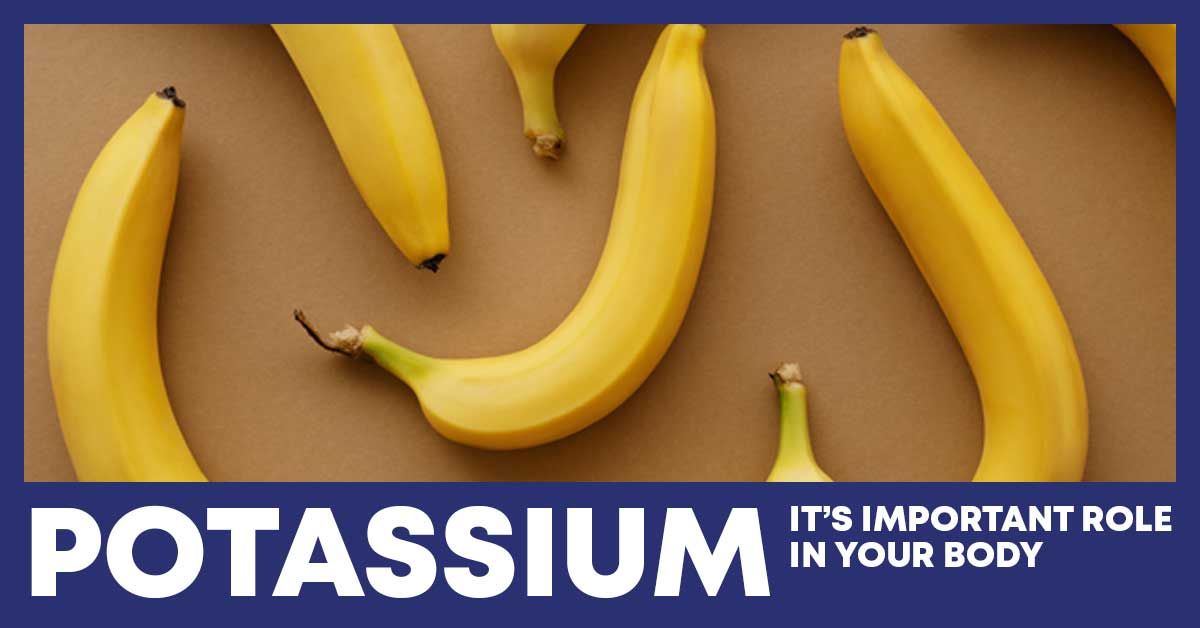When you think about potassium the first food you probably think of is bananas. The fruit has long been synonymous with potassium, but you may not be aware of what potassium actually does for your body.
Potassium is classified as an electrolyte because it is highly reactive in water and can dissolve to produce positively charged ions. Electrolytes are lost when sweating and need to be replenished to keep your body functioning properly. Because electrolytes are not found in water, it is necessary to use other foods or beverages (in addition to water) to properly recover after sweating.
What does potassium do for you?
Potassium plays a vital role in managing fluids, nerve signals, and muscle contractions. Additionally, it can help facilitate moving waste products out of cells and moving nutrients into their place.
There is a balancing act within your body that goes on between potassium and sodium. When your potassium intake exceeds your sodium intake, you can begin to decrease your blood pressure. However many Americans consume more sodium than potassium, due to sodium being the key mineral in salt. Many processed foods at home or meals served as restaurants contain an abundance of sodium.
If you currently have high blood pressure, increasing your potassium intake and decreasing your sodium can help to lower your blood pressure and decrease your risk of cardiovascular disease or stroke.
The potassium and nervous system connection
Consuming too little potassium can impact your nervous system as well. You rely on potassium to generate the nerve impulse that regulates muscle contractions, heartbeat, reflexes, and other key body functions.
As a result, your muscles can feel weak and cause them to cramp. This is one reason why bananas are a common go-to for cramp relief. But bananas also contain magnesium and calcium, two other crucial nutrients in relieving cramps.
What foods are a good source of potassium?
Bananas are not the only good source of potassium, a number of other fruits or vegetables are great choices too, including:
- Grapes
- Avocadoes
- tomatoes
- Potatoes
- Beans
- Fresh leafy greens
- Carrots
- Citrus fruits
Can you have too much potassium?
Hyperkalemia is the result of having too much potassium in your body. This can be caused by other underlying issues (like kidney disease) or simply eating too many foods rich in potassium.
Often symptoms of this can develop slowly over many weeks or months and symptoms can be sporadic.
However as mentioned previously, the common problem for many Americans is actually the inverse, they’re consuming too little potassium.


